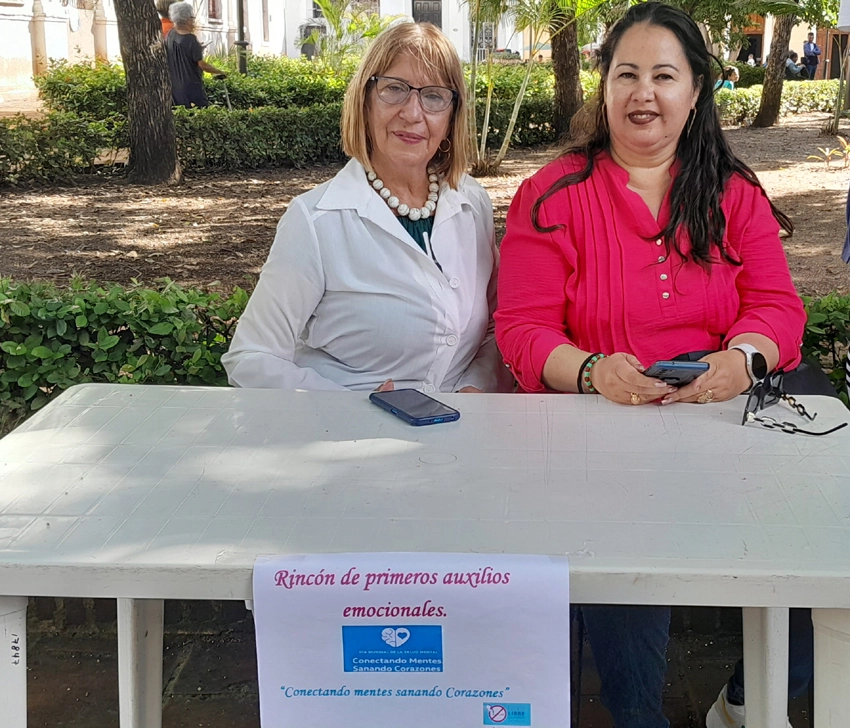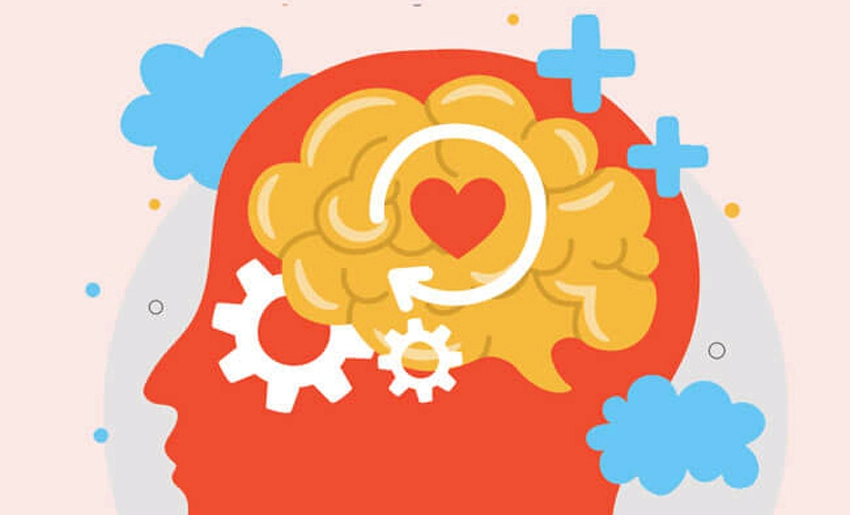The line between sanity and insanity is almost imperceptible. An idea that makes sense in the current era given the increasingly frequent mental health problems. Faced by the Holguin, Cuban, and global population in general.
It is a reality that diagnosing mental health disorders at an early age is the key to avoiding all types of problems. Among the most feared being suicide.
Regarding the behavior, causes, and possible actions to address this problem in Holguin, psychiatrists Mayra Góngora Herce, president of the Holguin Chapter of Psychiatry and coordinator of the Master’s program in Community Mental Health. And Ariagna Ochoa Hidalgo, head of department at the Community Mental Health Center and coordinator of the Mental Health Program in the municipality of Holguin, join forces to uncover issues of interest related to this topic.

Dr. Mayra Góngora Herce: “We work on the mental health of Holguin residents every day because we care for a group of patients. To provide them with physical, emotional, and psychological well-being and to help them learn to cope with challenges, adversities, situations, and problems. To this end, we provide them with tools at our Community Mental Health Center. Where we also work with a group of patients with neurotic functioning.”
The public’s perception is that in recent years there has been a higher incidence of mental health problems. Is this really the case?
“It’s true that this perception exists. After the COVID-19 outbreak, the number of patients actually increased at our center. We also welcome everyone who comes seeking help, and they leave satisfied with our management. Which includes prevention and outreach beyond the center to schools, workplaces, and the community.”
So, by providing information, there is greater awareness that there are illnesses and situations that can be managed in a completely different way. Even the population has learned.
“There are mental health teams in all health areas made up of psychiatrists, psychologists, nurses, and social workers, who work directly in the community. This reduces hospital admissions and improves the mental health of the population.”
What are the most common diagnoses in the field of mental health in the province of Holguin?
“Right now, I think addictions are one of the situations we are truly addressing and managing. We have a group at our center where we work not only with the patient but also with the family. So that the latter understands and helps.
“In the scientific and academic areas, we also tutor theses and prepare educational interventions to educate the partners of these young addicts. In our consultations, those addicted to synthetic cannabinoids predominate.”
A patient once asked if it was much easier to quit alcoholism and smoking than drugs. It turns out that the damage caused by alcohol is generally gradual. Also increases when you start using it, just like with cigarettes; it’s seen gradually.
“However, in the cases we’re seeing with these young people. With no experience at all, the consequences are much more rapid, psychologically, biologically, familial, socially, and legally.”
The province of Holguin is one of the provinces in the country with the highest incidence of suicide and suicide attempts. What factors could influence this behavior?
Dr. Ariagna Ochoa Hidalgo: “One of the main problems today is the education we are giving our children from an early age. Sometimes the abusive use of overprotection fails to develop defense and coping mechanisms for the adverse situations we encounter in life. In many cases, this can be one of the main sources and factors that lead to suicide attempts.
“The most vulnerable ages for suicide attempts are young people between 15 and 18 years old. This is where the highest number of attempts are made in the municipality of Holguin. However, suicidal behavior occurs in adults over 65, often caused by the retirement phenomenon. Which is not well managed, and they fall into depression, do not seek help. Also take this drastic and fatal measure, both for the family and the community.”
What symptoms, traits, and manifestations can raise suspicions in families that a mental illness is present?
“There are many stigmas, myths, and taboos surrounding mental health conditions. These are reasons why the phenomenon is sometimes not adequately managed. For example, ‘if they say it, they don’t do it,’ ‘they’re bragging.’ ‘They’re just looking for attention,’ or ‘they’re spoiled,’ are often said in conversations, and we don’t realize that sometimes the person doesn’t know how to ask for help. This is the way they may use to get closer.
“When these behaviors go unnoticed, they appear and the phenomenon occurs. This then triggers a chain of ‘I could have done something.’ ‘If only I had listened to them.’ Whenever we speak to families, we emphasize that mental health problems affect us as much as, or more than, any of the illnesses that are commonly managed in the general population.
“For example, when it comes to hypertension, diabetes, or coronary artery disease, families usually take care to avoid them. However, sometimes they neglect their habits and routines. They experience excessive stress and have no way to channel this accumulation.
They don’t realize that for a favorable state of health to exist. The body must be harmonized and fully capable of coping and feeling well-being. Therefore, we neglect mental health; we don’t prioritize it. We think that feeling stressed is part of everyday life and the normality of modern life.
“When the body is simply telling us: it’s time to stop, we must take a break. We also live in times of turbulent society, life is very fast and hectic. Within the scope of education, the importance of personal self-care is not encouraged from childhood.
“If we work on this, we could reduce these factors and the person could begin to properly manage stress. For example, anxiety and sleep disturbances, which all contribute to a mental health condition in the long run.”
What does the Emotional First Aid Corner initiative consist of?
“As a health education and promotion initiative, we set up a center called the Emotional First Aid Corner. Where anyone who comes with an emotional situation that could cause them distress will be well cared for, advised. Moreover if they need treatment or follow-up, we can also handle it.”
What role does the Community Mental Health Center play in efforts to combat drug use at the provincial level?
“When drug prevention interventions are strengthened at the national level. We understand the importance of reaching the community and every space where this issue can be addressed. First, the stigmas and taboos surrounding drugs must be eliminated, as it is a fairly complex issue.
“Given that our culture was not characterized by such a rapid increase in drug use. Our population is not prepared to deal with it, nor to know what to do when faced with use. Furthermore, they are not prepared to create the defense and prevention mechanisms. That prevent every young person from resorting to this type of use.” So, our community centers work every third week of each month. Going into communities with these prevention messages.
“We need to raise awareness among the population so they understand that this is an illness. The best way to avoid it is prevention, because the process after rehabilitation is complex, painful, long, inconsistent, and requires a lot of effort and sacrifice. The best thing is for our youth to have the defense mechanisms. So they voluntarily understand that a drug-free life, free from these abuses, is better.”
- The 4th edition of the Master’s Program in Natural Medicine will begin in Holguin - 16 de January de 2026
- Blood Bank Inaugurated at Holguin Military Hospital - 15 de January de 2026
- Holguin Cancer Center Plans to Incorporate Endoscopic Surgery in Urology - 14 de January de 2026

